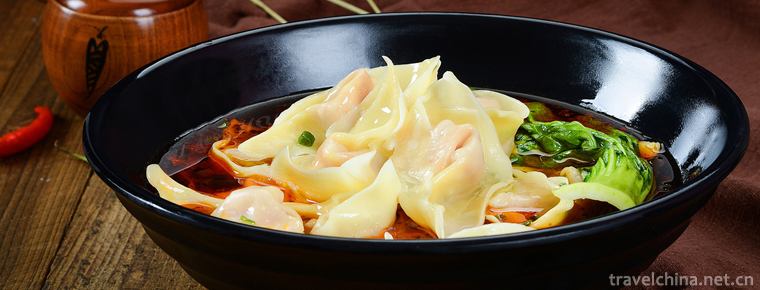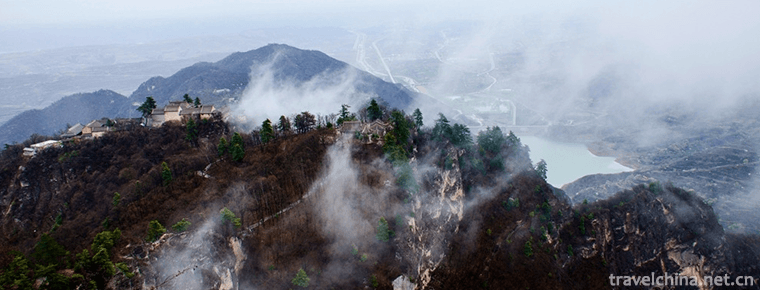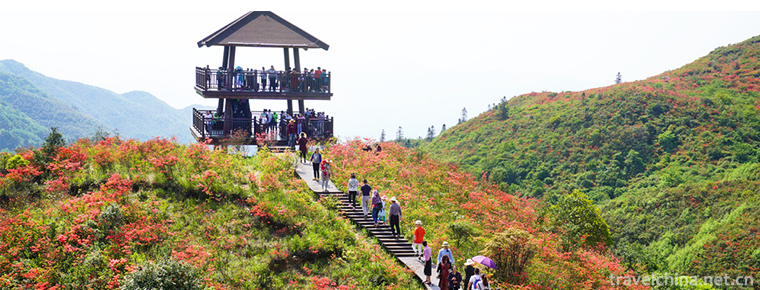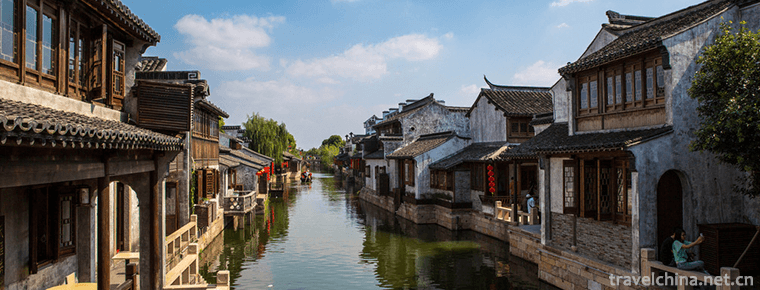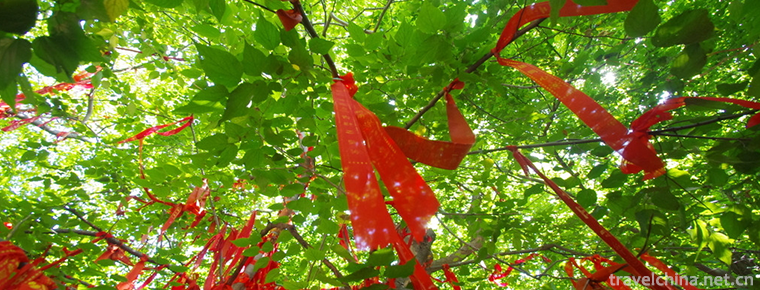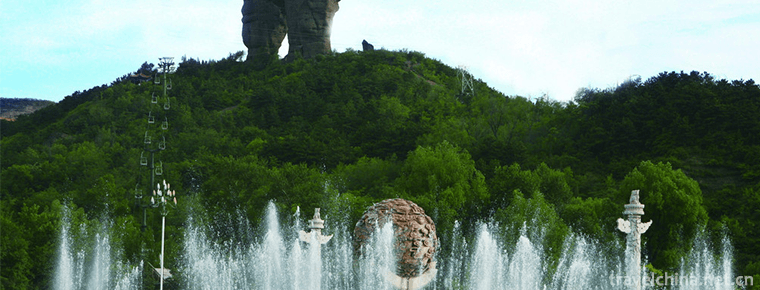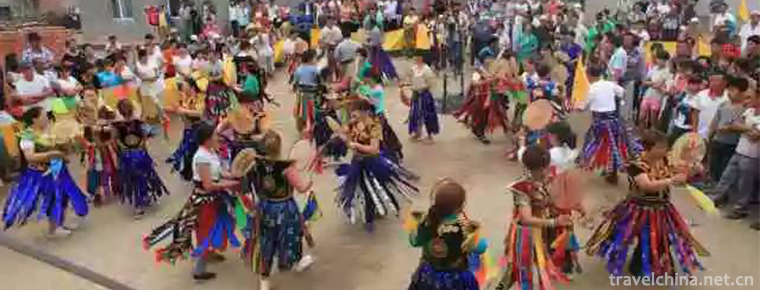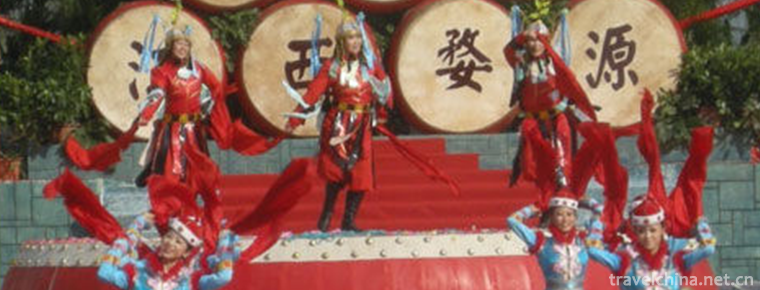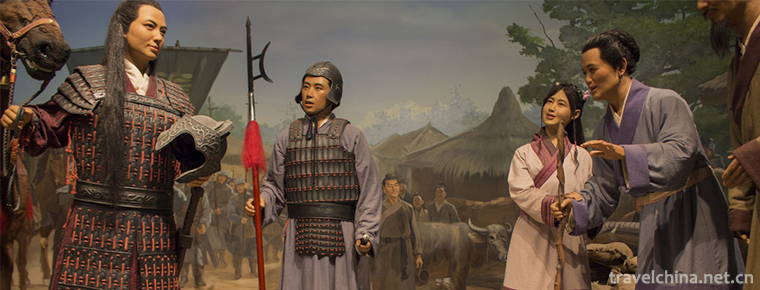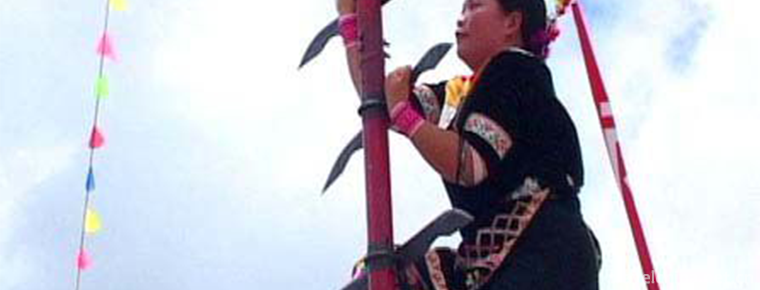Xinchang tune
Xinchang tune
Xinchang tune is one of the ancient opera tunes, also known as "falling out of tune", "Shaoxing high-key" and "Xinchang high-key". With Xinchang as the center, it has spread in Shaoxing, Xiaoshan, Shangyu, Yuyao, Shengxian, Ninghai and other places in eastern Zhejiang. It is considered to be the only remaining sound of Yu Yao's tune, one of the "four major tunes" of the Southern Opera of the Ming Dynasty. At the beginning of Qing Dynasty, Xinchang tune entered its heyday, with Hangzhou as the center and spreading outward.
Xinchang is located in the mountainous area of Eastern Zhejiang Province. Its environment is relatively closed, so its tune can be preserved in this corner. In the tune Sanqu "wind gun conjunction", we can also find the echoes of "step song" in Tang Dynasty and "turn step" in Song Dynasty, which is of great significance to the study of ancient opera and music. The tune has deeply influenced the surrounding operas. Ninghai Ping Tune is its branch. The local operas such as Yueju Opera, Taizhou Ran Tan, Ruian Gaoqiang Opera and Shao Opera also get certain nourishment from their repertoire, voice and performance.
In 2006, Xinchang Tune declared by Xinchang County of Zhejiang Province was listed in the first batch of national intangible cultural heritage list (category: traditional drama; number: IV-8) with the approval of the State Council.
historical origin
Opera experts unanimously affirm that Xinchang tune is the "living fossil of Chinese opera". The latest research results show that tune is the product of the unification of the Yuan Dynasty, which is "the northward movement of the Northern Qu, the northward movement of the Southern Tune and the communication between the Southern and Southern Tunes". It has a history of more than 600 years from its birth to today.
Zhang Dai, a famous writer of the Ming Dynasty, even exaggerated the tones of "wonderful" and "wonderful again" in "A Dream of Tao'an". By the Qing Dynasty, tune clubs were flourishing everywhere. There were dozens of performing groups such as Song Fengtai and Lao Fengtai in Xinchang alone. At that time, there was a saying, "Seal the box at the end of the year, when the artist returns home, he can come on stage by speaking and acting". This shows the grand occasion of that year.
In the Ming Dynasty, tunes appeared more and more, commonly known as high-pitched or high-pitched. One tune was first seen in Zhang Dai's Dream of Tao'an in Shaoxing in the late Ming and early Qing Dynasties: "Zhu Chusheng, female opera ear, tune opera ear." Zhu Chusheng, as mentioned in Zhang Dai's Dream of Tao'an, was a famous tune actor at that time. "Women's Opera" refers to women who sing tunes. The tune, called Gaoqiang by Shaoxing people, is characterized by its singing characteristics of "untrusted strings, unaccompanied singing, voice assistance, accompaniment of gongs and drums". Tunes are popular in old Shaoxing and Taizhou prefectures, Ningbo, Zhoushan, Wenzhou and Western Zhejiang. At the beginning of Qing Dynasty, Xinchang tune entered its heyday, with Hangzhou as the center and spreading to the outside world.
Qupai style and singing tune have tune, Kun tune and Siping tune. They mainly have tune and help tune. They are the only scripts in Shaoxing area that use North and South tunes as their scripts. From the end of Ming Dynasty to the middle of Qing Dynasty, tune and Kun Opera were popular in Shaoxing. At the end of the Qing Dynasty, the Kun Opera tended to decline, and the tune was welcomed by the audiences in Ning, Shao, Wen and Taiwanese. In Li Ciming's Diary of Yue Man Tang, there are "Qunyu Ban" in Xianfeng and Tongzhi. In Xinchang, there are "Lao Fengtai", "Feng Stage" and "Datongyuan". They are commonly known as "Twelve and a half" tuning classes with 200 practitioners.
By the beginning of the War of Resistance Against Japan, the soldiers were in disorder, and Shaoxing tune tended to decline. Tune actors joined the random bullet troupe to perform, while Xinchang tune was outstanding. Since the Republic of China, tune performances in various places have gradually decreased. By 1959, Xinchang County set up a professional high-tune theatre troupe, tune is listed in classics under the name of "Xinchang high-tune". Despite the twists and turns, Xinchang tune is still active on the stage today.
In May 2005, Xinchang Tune was listed in the first list of intangible cultural heritage protection in Zhejiang Province.
In May 2006, Xinchang Tune was listed as the first national intangible cultural heritage list by the State Council.
Artistic Characteristics
Singing
In Xinchang tune singing, there are many ways, such as dry singing, helping tune, folding board and so on, often using a word or a number of supporting tune at the end of each line of lyrics, or repeating the words at the end of each sentence with different melodies at a later beat; using pure human voice for helping tune, the melodies of each sentence tend to decline gradually. Among them, "Bangqiang" refers to the singer's backstage chorus or chorus at the end of the sentence. It is neither a simple "one-singer-all-in-one" nor the kind of behind-the-scenes chorus commonly used in other dramas, but a regular and hierarchical response according to the psychological state and typical environment of the actor at that time.
The same Lyric can achieve artistic effects that other music can't achieve through the form of "help tune" in Xinchang tune. "Dry singing" is an ancient form of singing that "does not support the silk bamboo, Gong and drum festival, front opening, back linking". It is difficult to grasp if there is no fairly high singing skills. Xinchang tune belongs to the Cipai system. It has very precise lyrics and abundant music cards. Now there are 360 traditional music cards. In the tune Sanqu "wind gun conjunction", we can also find the echoes of "step song" in Tang Dynasty and "turn step" in Song Dynasty.
Music
Xinchang tune music can be divided into two parts: opera music and scene music. Opera music consists of two parts: literary (lyric) music (aria). The style of opera singing takes Qupai as its basic structural unit. There are more than 360 traditional music cards, which can be divided into two categories: divertimento and song-only.
"Divergence" is composed of several pieces of music, which are connected according to certain rules. There are 32 sets such as "Lip Clipping Set", "New Water Ling Set", "Nine Turning Sets of a Branch of Flowers", "Liangzhou Sequence Set" and so on. "Only Song" is composed by a single music card and sung repeatedly. There are still 37 pieces such as "Cinnamon Branch Fragrance", "Filial Piety Song", "Zhuyunfei", "Wind into Song", "Three Shots in a Hurry" and so on.
accompaniment
Xinchang tune does not use orchestral accompaniment, but only percussion accompaniment. Afterwards, due to the influence of Kunqu Opera and random play, flute and Banhu accompaniment are used in a few Folk Opera. The tune accompaniment band is very simple, consisting of only six people, responsible for drums, gongs and other performances. Modern tune singing has been mixed with a variety of musical instruments, which is gradually changing with the development of society.
Profession
The role of Xinchang tune should be called "Sanhua, Sibai and Wudantang". Sanhua is big, Erhua and Xiaohua, Sibai is old, Zhengsheng, Deputy end and Xiaosheng, and Wudantang is old, Zhengdan, Tidan, Xiaodan and Wudan.
perform
Xinchang tune is famous for its exquisite performances, such as chairs, candles, back kicking boots and other stunts.
Characteristic
Xinchang tune also has a unique music symbol "Earthworm". It is named because it resembles earthworms (commonly known as quzhao). It is noted beside the lines of ancient scripts. It is accumulated and passed down by generations of tune artists. Tune artists sing different tunes according to these specific tunes and quzhao. These "earthworms" can still be seen in the copies of ancient tunes.
Classic repertoire
The opera in Xinchang tune is amazing. It almost runs through the whole history of the development of Chinese opera. In the Northern Song Dynasty (960-1126 A.D.), there are two versions of the tune of the Song Zaju "Mulian Save Mother" popular in Bianliang (Kaifeng, Henan Province today). One is 168 copies (including "forehead copies"); the other is 107 copies (excluding "forehead copies"). A total of 275, inherited to date.
Southern Opera of Song and Yuan Dynasty was formed after Huizong Xuanhe of Song Dynasty (1125 A.D.). There are 49 Southern Opera (including remnants) in tune, such as "Pijing, Liu, Bai and Kill". Northern Opera and Southern Opera of Yuan Dynasty are both inherited from Tang and Song Opera and the tunes of various palaces. The difference is that Northern Opera absorbs the music and folk songs of the northern nationalities. Southern Opera absorbs Southern folk music and folk songs, while tune opera also absorbs Northern Opera, but there are very few. As far as we know, there are only 36 books, accounting for about 5% of the total.
From the early Ming Dynasty to Zhengde (1368-1521 A.D.), Southern operas formed four major tunes: Kunshan, Yiyang, Yuyao and Haiyan, and eight minor tunes, such as Leping, Taiping, Siping, Qingyang, Yihuang, Yiwu and Yueyan. The activities of tuning are centered on Shaoxing Mansion and supported by scholars of Yue Zhong School. The famous ones are Yuyao Yao Yicheng, Xinchang Ding Ruoshui, Xu Wei, Wang Jide, Meng Shengshun and Xie Guo, Yuyao Ye Xianzu, Wu Tiancheng, Tulong and Shangyu Xiejian in Ningbo. To provide tunes and legends, so far as we know, there have been 91 legends of Ming Dynasty.
From the beginning of Qing Dynasty to Xianfeng years ago (1644-1851 A.D.), the rise and fall of each tune varied. Xinchang tune, like the past, had tune clubs in Shaoxing prefecture, including nearly 40 pairs of "Tang Qunyu", "Ying Qunyu", "Datongyuan". It also had a large number of legendary plays in the Qing Dynasty. At the same time, various kinds of Huabu random play are gradually rising in various places, which strengthens the exchange of plays. The Legendary Play Theory of Qing Dynasty in Xinchang Tune can not be fully described at this moment. There are about 84 copies of Xilou Ji, Chunqiu Bi and Tieguan Tu.
In fact, the tuning drama, a new script written in the late Qing Dynasty and the Republic of China (up to 1948), is no different from the legends of the Ming and Qing Dynasties. In order to distinguish the tuning drama from the legends of the Ming and Qing Dynasties, the old tuning operas of that time gave a name of "current drama". In fact, there are still some differences between contemporary drama and legends of Ming and Qing Dynasties. First, in terms of material selection and scriptwriter form, they catered to the appreciation interest of the young audience at that time. Such current plays accounted for about 60% of the total purpose of the current plays. Second, they used materials to look backwards, and sometimes picked up the old themes of Southern Opera, Northern Opera and the legends of the Ming and Qing Dynasties, and made a large-scale adaptation, such as The Golden Lock of Dou E's Injustice, and North West Chamber. 》 As for Nanxi Xiang, this kind of play is about 20% of the total purpose of the current play. Thirdly, the miniaturization, picking out the favorite parts of the original plays, or absorbing folk mini-plays, making special processing, to create high-quality products, so that the audience more like this kind of plays, such plays account for about 30% of the total time drama. According to the available information, Xinchang once owned more than 270 plays.
In addition to the above-mentioned plays, from March 1953 to June 1958, a large number of handwritten copies were collected, including 230 copies and 286 copies (out), waiting for the future generations tuners to sort out, protect, inherit and develop. At present, there are 136 plays such as Biography of the Evil, Li Huiniang and Rhododendron Hill. There are 51 tunes of Southern Opera (including remnants and Song Zaju) in Song and Yuan Dynasties, 36 operas of Northern Opera (including remnants), 91 legends of Ming Dynasty, 84 legends of Qing Dynasty, 270 contemporary operas and 136 modern operas. There are 668 plays in total.
Inheritance and Protection
inherit
At the end of the Qing Dynasty and the beginning of the Republic of China, wars were still frequent. With the rising of new operas, Xinchang tune declined. Before 1937, there were more than 20 tuning classes in Shaoxing, Xiaoshan, Shangyu, Yuyao, Shengxian (now Shengzhou), Xinchang, Ninghai and Tiantai in eastern Zhejiang Province. They were all disbanded during the Anti-Japanese War. In 1954, Xinchang New Opera Troupe (now Xinchang Gaoqiang Opera Troupe) and Ninghai Ping Opera Troupe were re-established.
In 2007, the Xinchang County Archives promoted the "Restoration and Collection of Xinchang Tune Archives" as a key archives rescue and protection project. 457 volumes of tune archives were restored and completed. 130 pieces of music, 30 plays and nearly 1,000 photos were collected, and electronic archives for about 200 volumes of tune archives were established.
In order to ensure the successor of tune, Xinchang County Tune Theatre Troupe selected 34 students from the county's 13 to 15-year-old teenagers to study in the five-year tune secondary vocational school class, and invited national successors Zhang Huaqin, provincial successors Lu Yueming and other veteran artists to teach. In 2008, four Xinchang entrepreneurs donated 4 million yuan to set up the Xinchang Tune Protection and Development Fund. The tune troupe has created and rehearsed a number of repertoires such as "After the Seasonal Election", "Nao Jiujiang", "Water Bo" and performed in various places, which has been praised by experts, scholars and all walks of life. In 2011, the historical clean government drama, Zhenqing Guan, was launched on a nationwide tour.
Inheritor
Cai Dejin (1943 - 2008) is a resident of Ding Village, Nanxiang, Xinchang County. Childhood fatherhood, family poverty, depending on the mother's support and growth. In July 1957, Cai Dejin, then only 15 years old, was admitted to the first tuner training class. In October 1959, Xinchang County Tune Theatre Troupe was established and was incorporated into the work of the troupe. After joining the regiment, he has strong adaptability. He plays clowns such as the little monk in Shuangxia Shan, which is vivid and invincible for a while. He plays Xiaosheng such as Xue Dingshan in "Three Invitations for Fanli Flowers", which is genuine and suitable for both culture and military. He plays Laosheng such as Qi Xuan Wang in "Queen Qi Chopped off", which is not only vivid in image, but also suitable for everywhere. As a character actor, he enjoys a high reputation among the audience.
In the spring of 1984, he entered the editorial and guiding class of Zhejiang Art School and graduated with excellent results. After returning home, he directed such dramas as "Daming Mansion", "Tielinguan", "Double Pushing Mill" and "County Taiye Trial", which are full of innovative spirit. In the summer of 2008, it was approved as a representative successor of national intangible cultural heritage projects.
Zhang Huaqin: Female, Han nationality, born in July 1942, from Rulan Town, Xinchang County. In the autumn of 1958, he entered the first tuning art training class in Xinchang County, Gongdan Cape. In October 1959, Xinchang County Tune Troupe was founded, which became one of the leading actors. Under the plan of "saving first, developing later", he played the role of Danjiao in more than 60 traditional tunes such as "burning Chen Youyu", "selling the door after slaughtering", "recruiting three sons-in-law" and "double jade matching". He was taught by Zhao Peisheng, a famous tuning veteran artist, and Lou Xiangtang. Since then, he has been the leading actor of the tuning troupe, and has a certain reputation in the eyes of audiences both inside and outside the county. In 1972, he began to teach apprentices and served as bishop of the 72nd, 78th and 87th art training classes. He contributed a lot to the inheritance and development of Xinchang tune. After retirement in 1997, he still carries on the inheritance work as usual. Especially in the teaching work of the 2007 five-year tune secondary vocational school, the results are more effective, and was assessed as the first batch of national intangible cultural heritage inheritors in that year.
Lv Yueming was born in January 1940 and was admitted to the first art training class of Xinchang Tune (Gaoqiang) in 1957. He was taught by the troupe bands Wang Yikai and Pan Yongqian. In 1959, after the founding of Xinchang Tune (Gaoqiang) Theater Troupe, he was the head of the band, the drum director, and began to compose the repertoire. In 1987, he served as the dean of the sixth Xinchang Tune Training Course and succeeded in composing plays. In 1988, Lu Yueming participated in compiling the Chinese Opera Music Integration Volume Zhejiang, and completed the compilation of 850,000 words in five volumes of Tune Music Integration. During this period, he became a member of China Dramatists Association and Zhejiang Opera Music Society. Lu Yueming's composing can faithfully inherit the individuality of the tune. Starting from the tune plate itself, according to the conditions of the actors, he can develop his strengths and avoid his weaknesses, and measure his style. In the process of singing design and music creation, Lu Yueming returns to the original to create new tunes. In 2007, Lu Yueming teaches Xinchang Tune Secondary School, succeeding in the composing of plays and singing design. In September 2009, it was named the third batch of representative inheritors of intangible cultural heritage in Zhejiang Province by the Provincial Department of Culture. In May 2018, it was designated as the representative successor of the fifth batch of National Intangible Cultural Heritage Representative projects.
Current status of tuning
Since Xinchang Tune was selected as the first national representative list of intangible cultural heritage, it has been attached great importance by the provincial cultural department, County Committee and county government, and the government's attention and investment funds have increased year after year. Particularly noteworthy is that, with the joint efforts of leaders at all levels, the cultural system reform in the tune troupe has also been successful. The tune troupe in Xinchang County has been transformed into the non-hereditary development and protection center of Xinchang County tune. The funds are fully allocated, and the existing staff of the troupe have been transferred to the tune Troupe after being examined by the county cultural authorities. Inheritance, development and protection center, non-staff according to job needs to select the best admission.
In 2007, 34 elementary school students aged 13-15 were recruited from all over Xinchang, and a five-year tuning secondary vocational school class was held. Teachers were led by Zhang Huaqin, a national inheritor of non-heritage, and Lu Yueming, a provincial inheritor of non-heritage. With patience in hand, primary school students were taught tuning skills. Through five-year study, primary school students were taught tuning skills. Has mastered a variety of tuning arts more proficiently, participating in provincial and municipal competitions or performances at all levels, are well received. The timely penetration of fresh blood makes the ancient trees of tune bud and germinate vigorously.
Award-winning record
The troupe has now rehearsed the performances of Naojiujiang, Hanjiang Pass, Piloting Water Bo, Red God, Mulian Opera Rhyme, Dingtianshan, White Rabbit, Chaotic Cloud Flying, Beixixiang Yousi, Beixixiang Jiansheng, Tianlei Bao, Cheng Ying rescuing orphans, Fengshenbang, Zhenqing Guan, etc. He participated in various opera performances and won 2 national, 4 provincial and 4 municipal awards. Among them, "Water Bo" participated in the 10th Zhejiang Drama Festival at Hangzhou Victory Theatre and won the Grand Prize for Drama, Director, Composer and Excellent Actor. He also went to Chengdu, Sichuan Province to participate in UNESCO. Exhibition of non-heritage festivals.

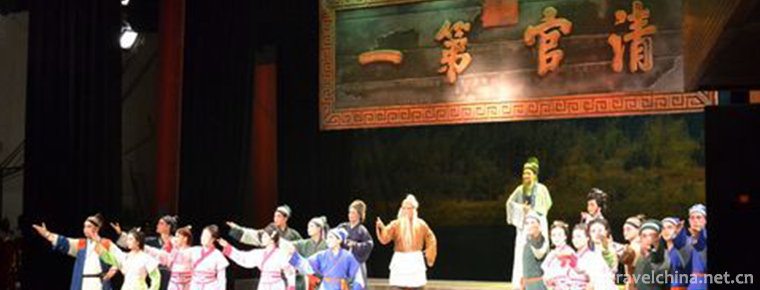
-
Online Shopping
Online shopping is to retrieve commodity information through the Internet, and send out shopping requests through electronic order forms, then fill in the number .
Views: 217 Time 2018-11-13 -
Kongtong Mountain Scenic Spot
Kongtongshan Scenic Area is located 12 kilometers west of Pingliang City, Gansu Province. It overlooks Xi'an in the east, Lanzhou in the west, Baoji in the South and Yinchuan in the north.
Views: 209 Time 2018-12-12 -
Daweishan National Forest Park
Dawei Mountain is located in the boundary between Hunan and Jiangxi Province, the hinterland of Lianyun Mountains, the East is Tonggu County under the jurisdiction of Yichun City, Jiangxi Province.
Views: 125 Time 2019-01-07 -
Dang Kou ancient town
Dangkou Ancient Town is located in the southeast of Xishan District, Wuxi City, Jiangsu Province. It is adjacent to the Yue noble tombs and Taibo Tombs in the west, and to Suzhou and Changshu in the e.
Views: 129 Time 2019-01-08 -
Tsing Tan Temple
Qingdan Temple is located 3.5 kilometers west of Fucheng, Zaozhuang City, in the narrow valley of Chu and Han Mountains. It was built in the Tang Dynasty..
Views: 191 Time 2019-02-07 -
The Twin Colossals
Shuangta Mountain is located ten kilometers southwest of Chengde Summer Resort in Hebei Province, with a total area of 3000 hectares and beautiful scenery. It is the largest natural scenic resort in C.
Views: 285 Time 2019-02-08 -
Bo dance
Horqinbo dance, a primitive religious dance, is a form of Mongolian Bo (Shaman) "Xingbo" (Dancing God) and sacrifice. It is characterized by the combination of inspiration,.
Views: 371 Time 2019-04-04 -
Drum Dance
Dance and drum dance is a kind of folk dance of Miao nationality in China. Miao people's "encouragement" has a long history. The written records of Miao people's drumming.
Views: 130 Time 2019-05-01 -
Mulan Legend Hua Mulan Legend
Mulan legend is one of the Chinese folklores. Mulan legend began in Sui and Tang Dynasty. It is characterized by the spread of Chinese folk oral language in the early period, and then by the appearanc.
Views: 120 Time 2019-06-06 -
The Lisu Knife and Rod Festival
The Lisu Knife and Rod Festival, which is called "A Tang De" in Lisu language, means "Climbing Dao Festival". It is a traditional festival of Lisu and Yi people living in Lushui Co.
Views: 166 Time 2019-06-17 -
Dazhou Railway
Railway lines: Chengdu Chengdu Railway, Xiangyang Chongqing railway, Dazhou Wanzhou railway, Daba railway and Chengdu Dazhou Wanzhou high speed railway (planned) .
Views: 70 Time 2020-12-20
